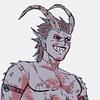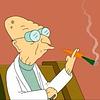Take a photo of a barcode or cover
Fantastical and showy, not tell-y. It's a hero's journey novel set on a faraway planet - I got Magician's Nephew crossed with Foundation crossed with Out of the Silent Planet vibes.
At its core, though, it is a hero's journey. It's set up very cleanly: background for the story, followed by crisis event, followed by a long hourney with a group of devoted fellow travelers who experience various boons and dangers throughout. It's not a bad formula, it's just one that really hinges on how the ending plays out. In Wizard of Earthsea, for example, the ending re-contextualizes the entire novel leading up until that point, and sets the stage for fertile symbolism that is applicable not only in-universe but also (more importantly) for real-life application.
Rocannon's World has an ending that is entirely satisfying in-universe, but doesn't really carry over into my life. I was entertained, but not awestruck like other sci-fi novels I've read. Kind of like Dracula, I can see why this book might have been foundational for setting up Le Guin's celebrated success in later stories... but it hasn't aged as well as some other classic sci fi from the same period.
I would recommend this book to anyone who really loves sci-fi and fantasy blending, or who might be curious about starting to read Le Guin more.
At its core, though, it is a hero's journey. It's set up very cleanly: background for the story, followed by crisis event, followed by a long hourney with a group of devoted fellow travelers who experience various boons and dangers throughout. It's not a bad formula, it's just one that really hinges on how the ending plays out. In Wizard of Earthsea, for example, the ending re-contextualizes the entire novel leading up until that point, and sets the stage for fertile symbolism that is applicable not only in-universe but also (more importantly) for real-life application.
Rocannon's World has an ending that is entirely satisfying in-universe, but doesn't really carry over into my life. I was entertained, but not awestruck like other sci-fi novels I've read. Kind of like Dracula, I can see why this book might have been foundational for setting up Le Guin's celebrated success in later stories... but it hasn't aged as well as some other classic sci fi from the same period.
I would recommend this book to anyone who really loves sci-fi and fantasy blending, or who might be curious about starting to read Le Guin more.
Cautiously intrigued by this opener to the Hainish series; as a stand-a-lone sci fi (with a mythic flair) novel it was enjoyable enough. The prologue in particular was told very well.
I have been hunting for the afterword to this and so far have not been able to find it…
edit: found ‘em all in the library of A editions!
I have been hunting for the afterword to this and so far have not been able to find it…
edit: found ‘em all in the library of A editions!
I just didn't connect with the characters. Not my cup of tea I suppose.
adventurous
A really enjoyable science fiction novel based from the perspective of a middle aged researcher going on an epic while stationed on an alien planet that closely resembles a high fantasy setting.
Tenia mucha curiosidad de leer a esta autora y decidí empezar por la que entiendo es su novela debut. Espero con el tiempo continuar esta saga y ver su evolución en la escritura.
adventurous
inspiring
tense
fast-paced
Plot or Character Driven:
A mix
Strong character development:
Yes
Loveable characters:
Yes
Diverse cast of characters:
Yes
Flaws of characters a main focus:
No
adventurous
mysterious
fast-paced
Plot or Character Driven:
A mix
Strong character development:
Yes
Loveable characters:
Complicated
Diverse cast of characters:
Yes
Flaws of characters a main focus:
No
Me ha gustado mucho. Te permite abstraerte mucho y al mismo tiempo reflexionar sobre temas como la aculturación, el imperialismo, la conquista del espacio, la empatía, etc. Es un contexto similar al del universo de la Fundación de Asimov, civilizaciones humanoides que dominan muchísimos planetas, encontrando planetas nuevos con especies distintas con vida más o menos inteligente, revueltas dentro del "imperio" o la liga, etc. Muy chulo, y es una saga :P
Interesting…. I listened to this as an audiobook, which is the first time I’ve read a book solely through audio since 2004 I think. Le Guin presents a vast world, then zooms into the journey of one person. Nothing is cosmic, or at least we don’t care about any cosmic tension; we are just following a peripheral story for one world among millions. It was short; it was pleasant.
A brilliant science-fiction novella crafted in the mold shared by other writers from the late 1960s such as Jack Vance - which is to say, traditionally-minded and masculinist, and diplomatically focused on the work of colonial imagination - but with an explosively thoughtful and exquisitely tragic transformation that begins to make that space more hospitable. Le Guin's genius lies in her ability to turn the ethnographic gaze on tired, careworn tropes that characterize the remains of the epic's legacy to adventure stories. In doing so, she enlivens them, and finds the pathos in heroism, the joy in communion, and the sweet sadness of achievement's cost.
Here, Rocannon the explorer finds that the work of being an outsider lies in understanding others, even and especially the enemies of his people, and that this is both desirous and life-changing. In the background there is a war - 1960s, remember - and this forms the major dramatic pinnacle of the story. But along the way, as Rocannon journeys with a slowly changing group of planet-side natives drawn from the diversity of species on the planet, the real joys and terrors are found in dramatic rescues, unfortunate turns, and the usual fare of science fiction adventure. Special mention must go to the prologue, which is written as an elegant myth that foregrounds the body of the story the way a sketch might outmaster in pure beauty the painting that follows it.
Le Guin.
Here, Rocannon the explorer finds that the work of being an outsider lies in understanding others, even and especially the enemies of his people, and that this is both desirous and life-changing. In the background there is a war - 1960s, remember - and this forms the major dramatic pinnacle of the story. But along the way, as Rocannon journeys with a slowly changing group of planet-side natives drawn from the diversity of species on the planet, the real joys and terrors are found in dramatic rescues, unfortunate turns, and the usual fare of science fiction adventure. Special mention must go to the prologue, which is written as an elegant myth that foregrounds the body of the story the way a sketch might outmaster in pure beauty the painting that follows it.
Le Guin.




